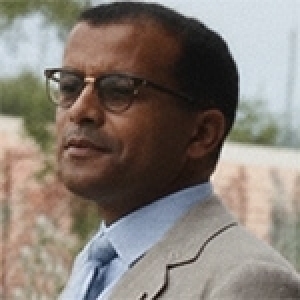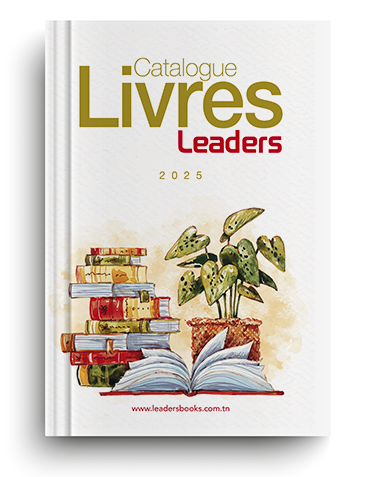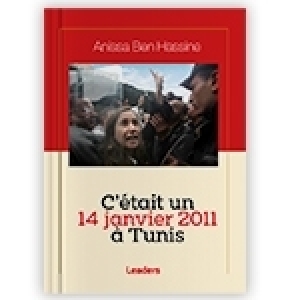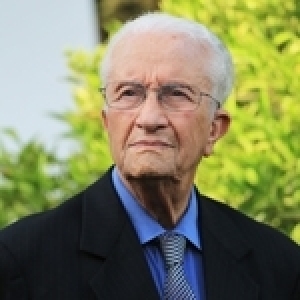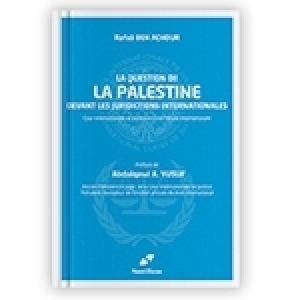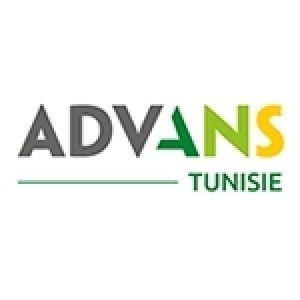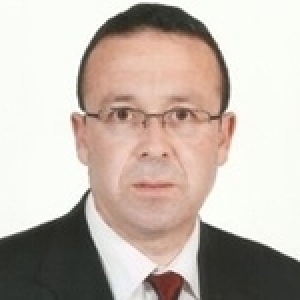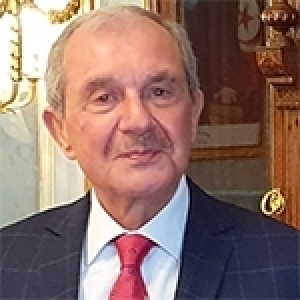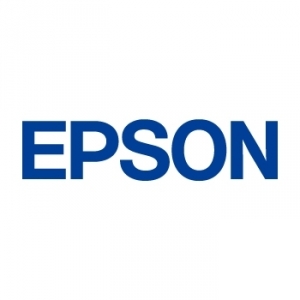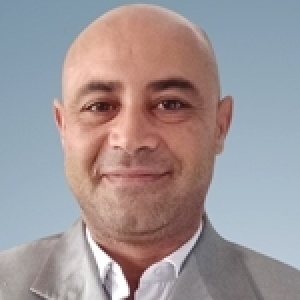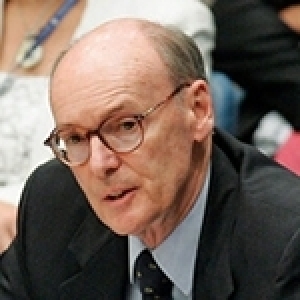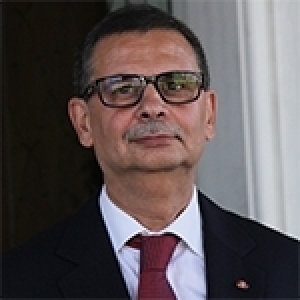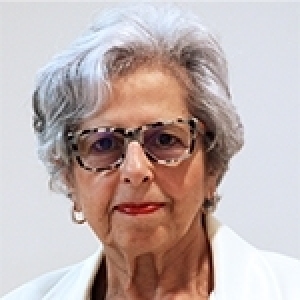Hilary Clinton: Nous sommes très confiants quant au potentiel de construction démocratique"
"Le peuple tunisien a encore une fois fait l'histoire" a déclaré, jeudi, à Tunis, la secrétaire d'Etat américaine, Hillary Clinton, soulignant que les Tunisiens ont "montré au monde que le changement pacifique est possible".
S'exprimant lors d'un point de presse conjoint avec le ministre des Affaires étrangères, Mouldi Kéfi, Mme Clinton a indiqué que les "Etats-Unis ont été aux côtés de la Tunisie dans sa lutte pour l'indépendance et la soutiennent, encore aujourd'hui, dans sa transition vers la démocratie, la prospérité et un futur meilleur".
La secrétaire d'Etat américaine a qualifié sa rencontre avec le ministre des AE de fructueuse, indiquant qu'elle a permis de discuter des divers volets de la coopération bilatérale et des programmes qui seront mis en place pour assurer un soutien efficace à la Tunisie.
Elle a mis l'accent sur l'importance de la transition démocratique en Tunisie, notamment la prochaine tenue "d'élections libres et transparentes" d'une Assemblée constituante et la formation des partis politiques.
"Nous sommes très confiants quant au potentiel de construction démocratique et de développement économique en Tunisie, et les Etats-Unis sont disposés à aider par tous les moyens", a-t-elle encore affirmé.
Dans le cadre du soutien au développement, Mme Clinton a indiqué que les Etats-Unis "appuieront un nouveau partenariat entre la société civile tunisienne et des sociétés de technologie américaines".
La société Microsoft soutiendra des groupes qui oeuvrent dans le secteur des droits de l'Homme, de la démocratie et de l'éducation civique en leur fournissant des ordinateurs, des logiciels et d'autres moyens d'assistance technique du genre, a-t-elle expliqué.
Les EU oeuvreront, également, à créer de nouvelles opportunités d'emploi pour les Tunisiens. La compagnie américaine pour l'investissement privé à l'étranger (Overseas Private Investment Corporation, OPIC) offrira un soutien financier sous forme de crédits directs, de garanties et d'assurances risque.
OPIC soutient déjà deux sociétés tunisiennes privées d'investissement qui financent des PME, et elle encouragera les visites d'investisseurs et d'hommes d'affaires américains en Tunisie.
L'Administration américaine, a-t-elle ajouté, demandera au Congrès de créer un Fonds pour les projets tuniso-américains, qui stimulera l'investissement dans le secteur privé, aidera à la création de projets à bas prix (low cost) et contribuera, notamment, au développement des régions défavorisées.
"Dans le cadre du partenariat économique entre les Etats-Unis et l'Afrique du Nord, nous oeuvrerons à mettre en relation les hommes d'affaires américains et les jeunes entrepreneurs de la région, afin de leur offrir de nouvelles opportunités et de les aider à développer leurs projets", a-t-elle annoncé.
Mme Clinton a également indiqué que le gouvernement américain explore la possibilité d'activer d'autres mécanismes de soutien économique, à l'instar de l'agence américaine pour le développement international (USAID)
Elle a, dans ce sens, affirmé que "La Tunisie est aujourd'hui éligible pour contracter des prêts auprès du Fonds pour les défis du millénaire (Millenium Challenge Account, initié par l'administration américaine et destiné à accélérer la croissance pour réduire la pauvreté NDLR).
Evoquant, par ailleurs, les "horribles violences" et les derniers développements en Libye, Mme Clinton a mis l'accent sur les efforts internationaux visant à protéger les civils et à mettre fin aux exactions de Gueddafi.
Elle a, dans ce cadre, tenu à remercier la Tunisie pour sa gestion humanitaire "impressionnante" de cette crise. "Durant une période difficile pour votre pays, vous avez fait montre d'une générosité incroyable pour soulager les souffrances des réfugiés sur la frontière", a-t-elle relevé.
Elle a, dans ce sens, indiqué que la Communauté internationale examine actuellement, au sein du conseil de sécurité des Nations Unies, la meilleure manière "d'empêcher Gueddafi d'éliminer l'opposition et de tuer d'autres citoyens innocents".
"Ni les Etats-Unis ni aucun autre pays n'agira unilatéralement, toute action sera issue d'une décision concertée au sein du conseil de sécurité", a-t-elle précisé.
"Les Etats-unis soutiendront les décisions du conseil de sécurité et nous oeuvrerons pour une large participation qui inclut les pays arabes, en vue d'assurer le suivi du cours que vont prendre les choses", a-t-elle fait observer.
Mme Clinton s'était entretenue, avant la conférence de presse, avec, respectivement, le Premier ministre par intérim et le ministre des Affaires étrangères.
La conférence de presse, improvisée dans la précipitation, était initialement prévue au ministère des Affaires étrangères, mais un rassemblement de contestataires devant le département a été à l'origine de son transfert au palais du Gouvernement à la Kasbah.
"Je m'excuse au nom de Mme Clinton et en mon nom pour ce retard et pour ces contretemps, "c'est le prix de la liberté", a indiqué M. Mouldi Kéfi.
Quelques centaines de personnes se sont, également, amassées devant le palais du Gouvernement brandissant des pancartes et scandant des slogans contre la visite de Mme Clinton en Tunisie.
On pouvait, notamment, lire "Non à une tutelle américaine sur le sol tunisien", "USA out" "(Etats-Unis dehors) ou encore "We don't want you here" (nous ne voulons pas de vous ici).
Transcription
FOREIGN MINISTER KEFI: (Via interpreter) At the outset at first, I would like to apologize to you journalists for this delay and the delay in the program. You journalists and the press, you are the force of power and today in Tunis, on behalf of myself and on behalf of the U.S. Secretary of State, I apologize. There has been some confusion (inaudible) at the ministry of foreign affairs, and that is the price of freedom. We decided to move our meeting to the new – from the new ministry to the old ministry, therefore, again, our apologies and we are here to listen to your questions.
SECRETARY CLINTON: Well, let me begin by thanking the minister and the president, the prime minister, the government, and the people of Tunisia. The Tunisian people have made history once again. You have shown the world that peaceful change is possible. The United States stood with Tunisia during your independence, and now we will stand with you as you make the transition to democracy and prosperity and a better future.
The foreign minister and I have had a very productive meeting and discussed many of the plans that are being undertaken on behalf of Tunisia’s future. The first step will be the election in July for the constituent assembly to draft a new constitution. We know that there will be much work that has to be done for both political and economic reform, and we discussed today a number of ways that the United States will help.
We will support a new partnership between Tunisian civil society groups and technology companies in order to get more information, communications capacity available broadly throughout society. Microsoft Corporation has agreed to support groups that are advocating for human rights, democracy, civic education, and other important matters to society, providing computers, software, and training and other technical assistance.
We will also work to create new jobs for Tunisians. The United States Overseas Private Investment Corporation, known as OPIC, will offer financial support in the form of direct loans, guarantees, and political risk insurance. OPIC is already supporting two Tunisian private equity firms that are focused on small and medium-size businesses and will support investor visits by American businesses to Tunisia.
The Administration is asking our Congress to establish a Tunisian-American enterprise fund to stimulate investment in the private sector and provide businesses with low-cost capital. We particularly want to assist the less-developed areas of Tunisia. We will also work through the United States-North Africa Partnership For Economic Opportunity to link business leaders and young entrepreneurs. We want the ideas of young Tunisians and we want to provide the startup capital that they would need to begin their own businesses.
We explored many other ideas for economic assistance that can be provided through other government agencies like USAID. Tunisia is now eligible to be considered for a Millennium Challenge Account grant. And we look forward to receiving the proposals from the government as they are formulated.
We discussed many aspects of the political transition, including free and fair elections, the formation of political parties, the training of candidates, and so much more.
Finally, let me say a word about the horrible violence going on in Libya. Mr. Kefi and I discussed the latest events and the international efforts to protect civilians and to pressure Qadhafi. I also thanked the minister for Tunisia’s impressive humanitarian response to this crisis. During a difficult time for your own country, the Tunisian people have shown great generosity in helping to ease the suffering on your own borders. The United States has been very proud to support your efforts, and we understand very well the importance of bringing an end to the violence in Libya not only for the innocent Libyan people but also for Tunisia.
We know there is a lot of work to be done, but we are very confident about the potential for democracy and economic opportunity in Tunisia, and the United States will be ready to assist in any way.
QUESTION: Hi, (inaudible) and my question will be in French.
SECRETARY CLINTON: French? We’ve got somebody in French?
QUESTION: (Via interpreter) Have you had the discussions about a possible military intervention in Libya? And if so, what would be the objectives, what would be the targets, and what would be the deadline if a schedule is specified? And also, would it be a multilateral intervention or a U.S. intervention? What would be the modalities of this intervention in Libya?
SECRETARY CLINTON: We discussed what is currently happening in the United Nations Security Council. The international community is debating how best to prevent Qadhafi from overrunning the opposition and killing many more innocent people. Neither the United States nor any nation will act unilaterally, but only if there is a Security Council resolution authorizing action.
As you know, the Arab League on Saturday asked the Security Council to consider taking additional actions to protect civilians, and that is what the Security Council is considering right now. And the United States will support the Security Council taking such action and will look for a broad base of participation, including from Arab nations, in order to follow through on whatever the course of action approved by the Security Council will be.
MODERATOR: The next question will be from Arshad Mohammed of Reuters.
QUESTION: Secretary Clinton --
SECRETARY CLINTON: We’re going back and forth between
QUESTION: (Inaudible.)
SECRETARY CLINTON: -- between Tunisians and Americans.
QUESTION: Have you discussed the issue of releasing the debts of Tunis – the debt of Tunis (inaudible)?
FOREIGN MINISTER KEFI: (Via interpreter) We have discussed – we have had long discussions with the Secretary of State and myself, the prime minister, and the president. We discussed the ways of promoting the cooperation at the economic and cultural and commercial levels. This is in general. We gave the U.S. Secretary of State a working document containing all the points that would enable the interaction that would lead to promoting the Tunisian economy under these difficult circumstances.
Just as the Secretary of State has mentioned, there are – there is a potential and possibilities for investment in – with Tunis, and to foster the creation of jobs and the economy. However, about the issue of debt, Tunis debt, we did not go over the issue of Tunis debt because this is not the picture and the image that you want to give to Tunis at this time. We want to give the more positive things and talk about the other things that could foster the economy.
MODERATOR: Arshad.
QUESTION: Secretary Clinton, the UN resolution that the United States – you just said the United States supported, does it have to include authorization for direct strikes on ground targets such as heavy artillery or tanks? Would it also include the possibility of using the drones to carry out such strikes and minimize potential casualties? And lastly, would it include arming the rebels or some possibility of arming the rebels so that we do not end with just a small Libyan (inaudible) state of rebels with Qadhafi controlling rest of Libya?
SECRETARY CLINTON: Those kinds of specifics, Arshad, are exactly what is being debated and negotiated as we speak in New York. There are many ways to write a resolution. Some would be more general authorization with certain goals laid out. Some would be more specific listing of what was or wasn’t authorized. And at this point, there is a lot of very intense discussion occurring. But it is important to recognize that military experts across the world know that a no-fly zone requires certain actions taken to protect the planes and the pilots, including bombing targets like the Libyan defense systems. So there are certain actions that are being discussed specifically, and there are also generalized grants of authority that would not require such specificity.
QUESTION: Do the Arabs themselves have to take part by providing pilots, by actually doing bombing, by actually, directly, literally involved in carrying out some of the special operations? Not just paying for it, not just saying they support it, but actually doing some of it?
SECRETARY CLINTON: That is also being discussed.
QUESTION: (Via interpreter) The question is: Is the UN Security Council discussing now and examining the potential of a military intervention by land through the Tunisian borders or through the Egyptian borders? And that is for American forces to use these borders for any military intervention. Two weeks ago, there had been talk about NATO asking for a logistical support from the Tunisians. So within that context, what is –
SECRETARY CLINTON: No. There is no discussion whatsoever of that.
QUESTION: I have a question on – Madam Secretary, on Japan. There’s a lot of concern about Americans. You’ve taken some action to authorize the departure of some of the families. Can you talk about the steps that are being made, the concern you have from Americans? Are you going to help evacuate any American that wants to get out of Japan? And concerns about the nuclear issue? Thank you.
SECRETARY CLINTON: The situation in Japan is very serious, and it is one that the United States Government is following on a minute-by-minute basis. We have our nuclear experts in Japan working with the Japanese to assess the situation. And it is a very troubling one.
And the President of the United States has authorized what’s called voluntary departure for Americans, but we are assessing this on an ongoing basis, and trying to be sure that, number one, we give the best information we possibly can to American citizens, and number two, we provide every possible assistance to the Japanese, who are trying heroically to get this disaster under control. We are sitting here in Tunis on a beautiful day and there is a nuclear disaster occurring in Japan that could have very broad ramifications. So we will do everything we can to try to help to prevent that.
PARTICIPANT: Thank you all.
SECRETARY CLINTON: Thank you.
- Ecrire un commentaire
- Commenter

